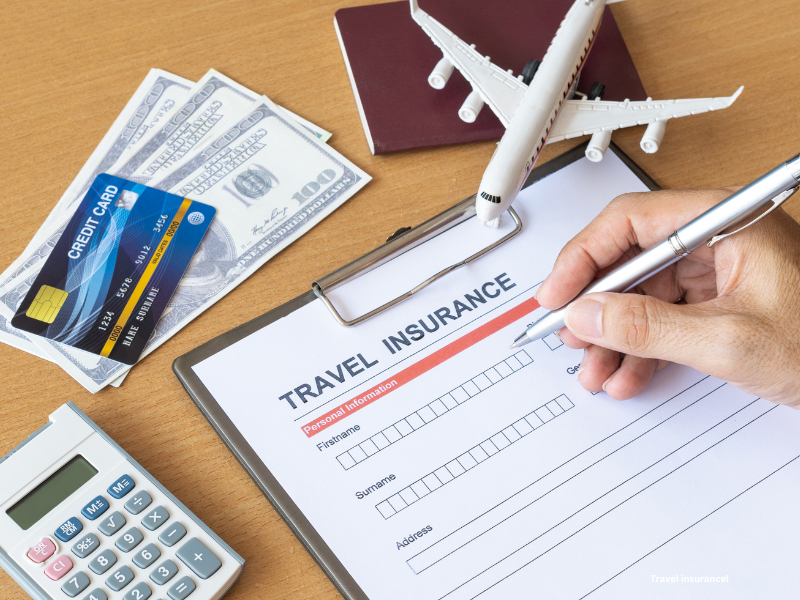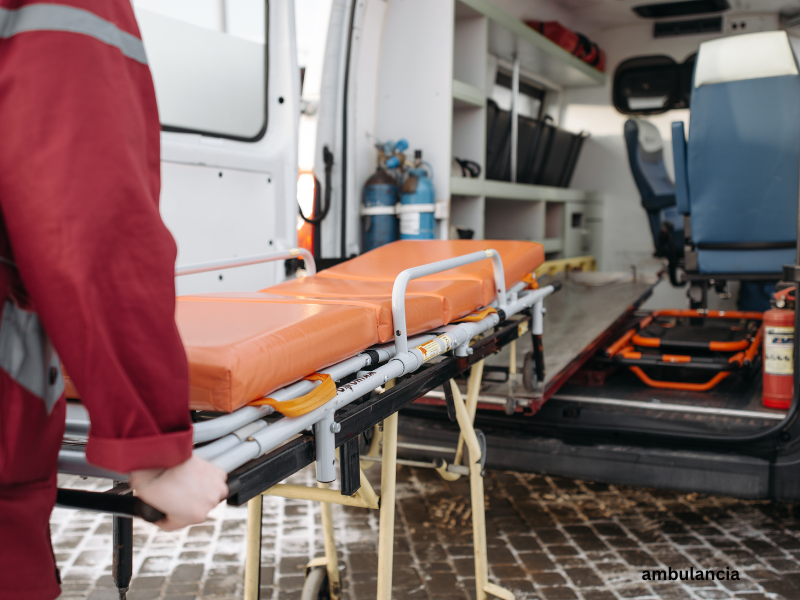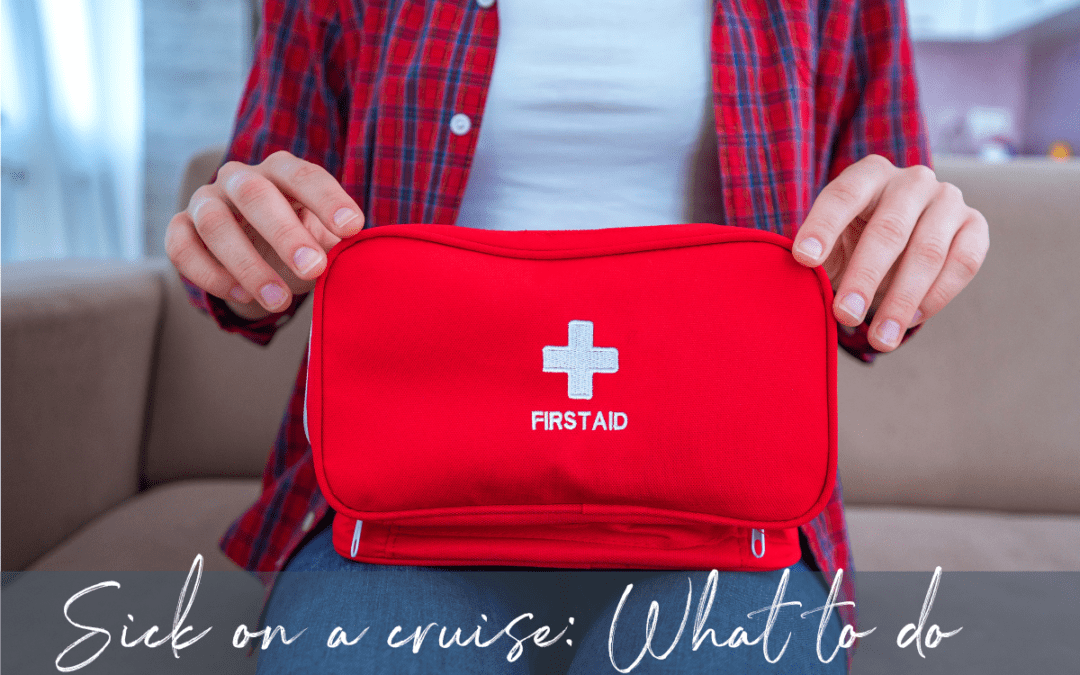What to Do When You Get Sick on a Cruise
Feeling under the weather while on a cruise can quickly dampen your vacation spirit. This guide provides essential information on handling illness while at sea, from prevention to seeking medical care.
Let’s ensure your next cruise is as enjoyable as possible, even if unexpected health issues arise.
If you become ill before embarkation
If you are feeling sick before your voyage, do not travel and ask your cruise line about rescheduling or reimbursement options. If you feel sick during your voyage, report your symptoms to the ship’s medical center and follow their recommendations.

Travel insurance is like a seatbelt for your trip; you hope you’ll never need it, but you’re glad it’s there when you do.
What to Do if You Get Sick on a Cruise
It can be tempting to tough it out when you’re feeling under the weather on vacation, but it’s important to listen to your body. Here’s what to do if you fall ill:
Minor Illnesses:
- Utilize your emergency first aid kit: Pack essential supplies like over-the-counter medications, bandages, and a thermometer.
- Rest and hydration: Get plenty of rest and stay hydrated to aid recovery.
Severe Symptoms:
- Seek medical attention immediately. Don’t hesitate to contact the ship’s medical center if you experience severe symptoms.
- Know the emergency number: Just like 911 at home, each ship has a dedicated emergency number. Make sure you know what it is.
- Non-emergency visits: For non-emergency visits to the ship’s medical center, consult the Carnival HUBB app or call Guest Services to find out open times.
Common reasons to contact the ship’s medical center include:
- Severe dehydration
- Nausea and vomiting
- High fever
- Difficulty breathing
- Chest pain
- Sudden onset of symptoms
- Slurred speech
- Numbness or tingling
- Severe pain
- Allergic reactions
Remember: Every situation is different. If you’re unsure about whether or not to seek medical attention, err on the side of caution.
Cruise Ship Medical Centers: What to Expect
Knowing what to expect from a cruise ship medical center can help you feel more prepared in case of illness.
Understanding the limitations and capabilities of these facilities is essential for making informed decisions about your health while on board.
While cruise ship medical centers are equipped to handle many common ailments, it’s important to remember that they’re not full-fledged hospitals.
If you have a serious medical condition, it’s crucial to have a plan in place.
This includes having your medical records and prescriptions readily available.
Cost of Care on a Cruise Ship
Medical care on a cruise ship can be expensive.
Unlike traditional healthcare providers, cruise lines are not bound by the same regulations or insurance networks.
This means costs can be significantly higher than what you might expect at home.
Remember, medical services are not included in the cost of your cruise.
If you require medical attention, you will be responsible for the bill.
Don’t hesitate to seek medical care if it’s an emergency.
Your health is paramount. You can work out the financial details later.
While travel insurance is crucial, it’s also essential to understand that your existing health insurance may offer limited coverage while traveling.
Before cruising, contact your insurance provider to inquire about your coverage while on a cruise or traveling internationally.
Be aware that many health insurance plans have exclusions for international travel, and even if covered, you might face out-of-pocket expenses, deductibles, or co-pays.
Always prioritize your health and seek necessary medical attention.

Our Personal Experience: Getting injured on a cruise
Nobody plans to get hurt or sick on vacation, but it happens.
And when it does, having travel insurance can be a lifesaver.
Trust me, I learned this the hard way.
On a recent cruise onboard Carnival Panorama, my husband and were on a shore excursion when the dock we were standing on collapsed.
Thankfully, our injuries were minor – just cuts, bumps and bruises.
My cracked ribs took two months before the pain went away.
However, it was a reminder of how quickly things can go wrong while traveling.
The Carnival Panorama staff were fantastic.
They got us checked out at the ship’s medical center right away.
We got cleaned up, X-rayed, and sent on our way with some pain medication.
But what if our injuries had been more severe?
The medical bills could have been huge!
That’s when the importance of travel insurance hit home.
Travel insurance is a safety net for your vacation.
It can cover medical expenses, lost luggage, and even trip interruptions.
While it might seem unnecessary, it can provide peace of mind and financial protection in case of the unexpected.
In our case, we were fortunate to have only minor injuries.
But I’ll never forget the feeling of relief knowing we had insurance if things had turned out differently.
Options for care while in port
If you need medical attention while in port, you have options:
- Farmacias (drugstores): Many Mexican pharmacies offer on-site doctors for minor ailments like colds, flu, or sprains. These are often a more affordable option. (see video below)
- Private hospitals: For serious conditions, private hospitals are available in popular cruise destinations. These offer a higher standard of care but come with higher costs.
Barriers to medical care internationally
- Language Barrier: While many hospitals and clinics in popular tourist destinations have staff who speak English, it’s always helpful to learn basic medical phrases in the local language.
- Cash or Credit Card: Many medical facilities in Mexico require upfront payment. Having cash or a credit card with available funds is essential.
- Ambulances: Ambulance services may also require upfront payment.
- Trip Insurance: Travel insurance can help cover unexpected medical expenses, including ambulance fees and hospital bills.
Admitted to hospital in port
If your condition requires hospitalization, contact your travel insurance provider immediately.
They can guide you through the claims process, help with language translation services, and assist with medical bills.
Next, contact your cruise line’s emergency number for support and guidance. They will arrange to have your things removed from the ship, etc.
How much does it cost for Medical Evacuation?
| LOCATION WHERE INJURED | COST OF EMERGENCY MEDICAL TRANSPORTATION TO THE U.S. |
|---|---|
| Asia | $165,000 to $225,000 |
| Australia | $165,000 to $225,000 |
| Caribbean | $15,000 to $25,000 |
| Europe | $65,000 to $90,000 |
| Mexico | $15,000 to $25,000 |
| Middle East | $165,000 to $225,000 |
| South America | $40,000 to $75,000 |

Medical Emergencies on the ship
If you experience a sudden and severe illness or injury while on the ship, such as chest pain, difficulty breathing, or severe bleeding, immediately contact the ship’s emergency number or ask someone else to do so.
Time is of the essence in these situations.
On Carnival Cruise ships the number is 911.
The Importance of Travel Insurance
Travel insurance is like a safety net for your vacation.
It can cover medical expenses, emergency evacuation, lost luggage, and even trip interruptions.
While it might seem unnecessary, it can provide peace of mind and financial protection in case of unexpected events.
Preparing for claims: Steps Before the Emergency
Before you set sail, it’s crucial to be prepared for any potential medical emergencies. Here’s what you can do:
- Know Your Policy: Familiarize yourself with your travel insurance policy, including coverage details, emergency contact numbers, and claim procedures.
- Keep Important Documents Handy: Have a digital or physical copy of your insurance policy, including the policy number, readily available.
- Emergency Contact Card: Consider creating a card with essential information such as your insurance provider, policy number, emergency contacts, and any pre-existing medical conditions.
- Backup Your Information: Store digital copies of your insurance policy and medical records in a secure cloud storage for easy access.
Steps to Filing a Trip Insurance Claim for Medical Expenses
Filing a travel insurance claim for medical expenses can be overwhelming, but understanding the process can make it smoother. Here’s a general guide:
1. Review Your Policy:
- Understand your coverage. Know what medical expenses are covered, any deductibles or co-pays, and the claim filing process.
2. Gather Documentation:
- Collect all medical bills, receipts, and proof of payment.
- Keep a detailed record of your medical treatment, including dates, times, and diagnoses.
- Obtain any necessary medical reports or prescriptions.
3. Contact Your Insurance Provider:
- Notify your insurance company as soon as possible about the medical emergency.
- Follow their specific instructions for filing a claim. This may include providing a written or online claim form.
4. Submit Your Claim:
- Complete the claim form accurately and honestly.
- Attach all required documentation.
- Submit the claim according to the insurance company’s instructions (mail, email, or online portal).
5. Follow Up:
- If you haven’t received a response within a reasonable timeframe, contact your insurance company to inquire about the status of your claim.
Additional Tips:
- Keep copies of all documents: This will help you track the claim process and avoid delays.
- Understand the claim process: Familiarize yourself with the insurance company’s procedures to expedite the process.
- Be patient: Processing claims can take time, so allow for sufficient processing time.

Preparing for Medical Emergencies
Proper medication management is crucial for your well-being.
Keep your prescriptions in your carry-on luggage to avoid losing them with checked bags.
Bring more medication than you think you’ll need and carry a small supply with you when going ashore.
Preparation is key. Inform the cruise line about any pre-existing medical conditions and carry essential medical information.
This includes a list of your medications, dosages, and allergies.
Consider wearing a medical alert bracelet or necklace.
It’s essential to have this information readily available, or a loved one should know your medical history.
Assemble a basic first-aid kit with supplies like bandages, antiseptic wipes, pain relievers, and any personal medications.
Learn how to make a Cruise Emergency Kit in this tutorial.
Stay hydrated and follow healthy habits like maintaining good hygiene and getting enough sleep to boost your immune system.
Don’t forget to wash your hands often.
Cruising with Pre-existing Medical Conditions
If you have a pre-existing medical condition, let your cruise line or travel agent know before cruising.
They can provide information about the ship’s medical facilities and any necessary arrangements.
(Contact the Carnival Special Needs Department)
- Inform the cruise line: Disclose your condition to the cruise line and provide relevant medical details.
- Carry essential medical information: Bring a list of your medications, dosages, and allergies. Consider wearing a medical alert bracelet or necklace. It’s essential to have this information readily available, or a loved one should know your medical history.
- Consult your doctor: Discuss the potential risks and benefits of cruising with your pre-existing condition.
- Consider travel insurance: A comprehensive policy can provide added protection in case of medical emergencies.
Pregnancy and Cruising: You could get sick on your cruise
Most cruise lines have restrictions for pregnant passengers.
Typically, women who are 24 weeks pregnant or beyond at any point during the cruise are not permitted to sail.
It’s essential to check the specific policy of the cruise line you’re considering, as there can be variations.
Always consult with your doctor before booking a cruise if you’re pregnant.
Conclusion
By understanding the potential risks, being prepared, and knowing your options, you can mitigate the impact of illness on your cruise vacation.
Remember:
- Prioritize your health and well-being: Listen to your body and don’t hesitate to seek medical attention when necessary.
- Be prepared: Pack an emergency first aid kit with essential supplies.
- Know your options: Familiarize yourself with the ship’s medical facilities and emergency procedures.
With proper planning and care, you can enjoy your cruise without unnecessary worries.
For more information on cruise safety, please refer to our blog post: [Cruise Safety: Everything you need to know]
Have you had a medical experience on a cruise?
Share your story and tips in the comments below to help other travelers. Don’t forget to like and share this post with your friends and family.
By sharing your experiences and knowledge, you can help create a safer and more informed cruising community.
Getting sick on your cruise vacation (FAQs)
- What should I pack in my first-aid kit for a cruise?
- Essential items include bandages, antiseptic wipes, pain relievers, antihistamines, motion sickness medication, diarrhea medication, and any personal medications.
- What if I need to see a doctor in a Mexican port city?
- Look for ‘farmacias’ with on-site doctors for minor ailments. For more serious conditions, visit private hospitals. Bring cash or a credit card as upfront payment is often required.
- What else can I do to prevent illness while cruising?
- Get enough sleep, manage stress, avoid excessive alcohol, and maintain good hygiene to boost your immune system.
- Where can I find more information about travel insurance?
- Many travel insurance companies offer online resources and quote calculators. Consult with a travel agent or financial advisor for personalized advice.
- Can I use my regular health insurance on a cruise?
- While some plans offer limited coverage, travel insurance is generally recommended for comprehensive protection. Contact your health insurance provider to understand your coverage.
- What should I do if I lose my medication while on a cruise?
- Contact the ship’s medical center immediately. Carry a copy of your prescription with you.
- Can I bring prescription medications on a cruise?
- Yes, pack them in your carry-on luggage and bring a copy of your prescription.
- What should I do if I have a chronic illness and need to take medication regularly while on a cruise?
- Inform the cruise line beforehand and ensure you have an adequate supply of medication. Carry a doctor’s letter detailing your condition and medication requirements.
- What if I need to see a specialist while on a cruise?
- The ship’s medical center may refer you to a specialist in a port city. Travel insurance can often cover these costs.
- Do cruise ships offer dialysis?
- Some cruise lines offer dialysis services onboard. It’s essential to check

